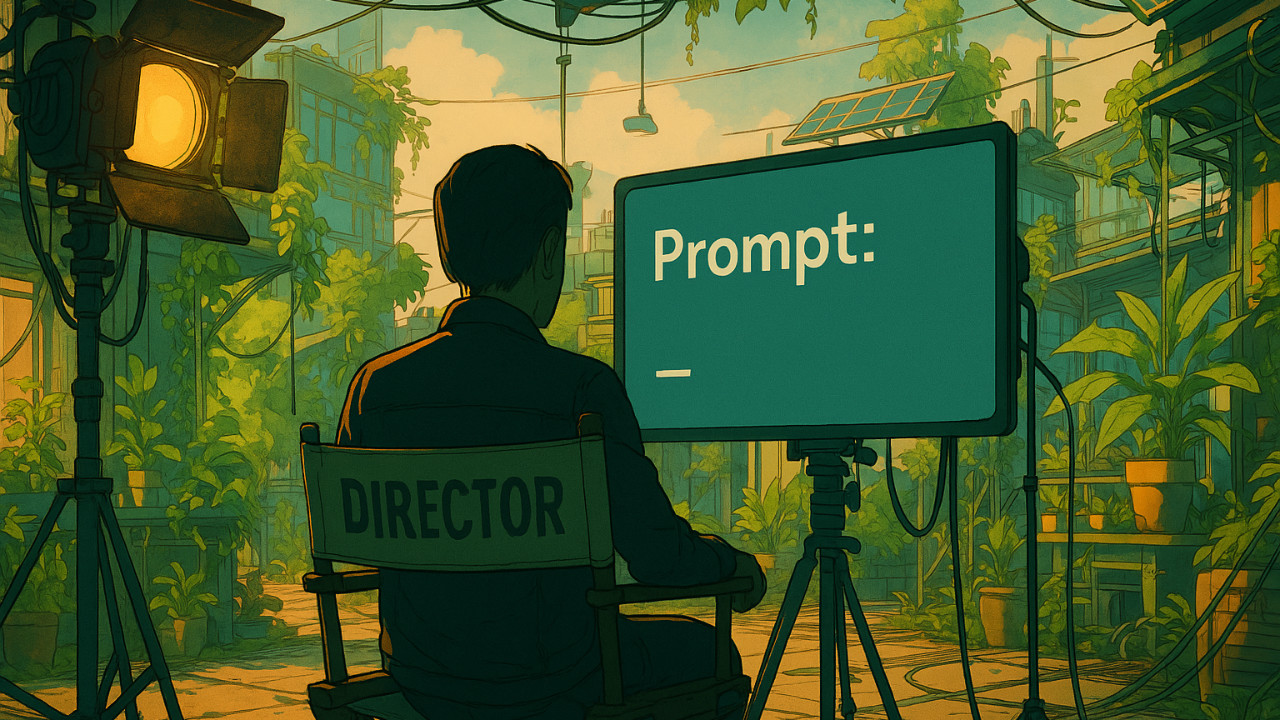AI, Art, and Directing
I’ve been thinking about Hayao Miyazaki and today’s AI explosion. All over social media, people reference that famous clip where he calls an early AI animation “an insult to life,” using it as evidence that “Miyazaki hates AI.” This interpretation has spread widely as artists grapple with fears about AI replacing them.
But watching that clip, I think what bothered Miyazaki wasn’t AI itself, but the quality and soullessness of what it produced. From reading his essays in The Starting Point, I’ve realized he’s really result-oriented, not so much process-oriented – he cares about creating work that meaningfully impacts the world.
The question of replacement is complicated. I think this fear resonates most strongly with artists who function more as craftspeople – those who’ve mastered techniques rather than developed their very own artistic visions. If an AI can actually replicate your artistic voice, maybe it’s worth revisiting what made it unique in the first place.
I believe AI won’t hurt art itself, but it will definitely disrupt the economics for many artists. The art market has always been a strange place, driven by those with money rather than discernment. Many artists create one kind of work for themselves (their “true art”) and another kind that’s more commercial. Now someone with no art training can generate paintings in any style and sell them, undercutting artists who depend on those sales.
And let me be honest: this AI revolution sometimes makes me question my own place as an artist. It is difficult.
For the masterpiece-makers, though, AI just means more tools. The art itself might actually improve as more people gain access to creative expression.
Right now, I feel I’m better than AI because it often has terrible taste. But it’s improving rapidly. What happens when AI eventually develops good taste and can perfectly execute any vision? What would my prompt even be?
The Director’s Creative Core
There’s something about AI that makes it feel like a cheap shortcut.
But well, hiring people to do a creative job is also a kind of shortcut – just an expensive one. Film directors delegate almost everything, yet still maintain control so the result isn’t merely an average of collective thinking, but a singular vision.
Is this wrong? I dunno. Look, when we like a movie, we usually praise the director, maybe the actors. What about these hundreds of people in the final credits?
It’s sad, but it seems nobody cares. They don’t get Oscars. In fact, they are often overworked and underpaid. And now they might lose their jobs, even if they do it well.
I don’t want to be a VFX artist at a studio like this. And why would anyone, if AI can (in the future) replace these jobs?
That’s an opportunity. An opportunity to seize the director’s seat. Without budgets or credentials.
And then, I was thinking: if AI can do everything, will still feel this is my creation?
Well, yes, because it’s executing my vision, and because of the emotions and perspective I’ve invested into it – just like a director on a film set. In a movie production, 99% of the effort goes toward ensuring technical quality, not making creative decisions. (I do mean it literally, and people have proven that: if you can accept lower quality, you can execute your vision at 1% the cost.) Now, if AI reduces those technicalities from 99% to 50%, I can focus more on defining my creative contribution. That’s a huge shift.
Efficiency vs. Individuality
I’ve noticed how AI tends to average out details and quirks in art – creating smooth, mainstream results at the expense of character. For most jobs, this is good.
But I want to express my unique vision. The AI struggles to understand it even when I explain exactly what I want. When generating text, it gets maybe 70% right. Even just asking it to summarize my notes is sometimes a challenge. It always needs guidance. And with images, even after many iterations, it often can’t make what I wanted. I still use these pictures for reference but not for final output.
(Yeah, sorry for the image above, that’s generated too, I just needed some visual for the website.)
My true contribution is the worldbuilding – creating a unique world, unlike anything I’ve seen elsewhere. My Lori story explores people who choose to forget their past, which kinda resonates with my view of modern society. It explores feelings of being an outsider, misunderstood, abandoned, and ultimately finding a human connection.
My creative process is evolving from doing everything myself to developing initial ideas and critiquing AI’s contributions. (Because, of course, it’s always easier to criticize other work than to actually make someting.) Even when I end up doing the work myself, I start with a clearer vision, making the process more efficient without sacrificing character.
Finding Flow with AI
This isn’t about extracting the best possible result from AI. It’s about aligning my mental process with what the technology can do. I appreciate how Ian Hubert explains 3D modeling in his “lazy tutorials” – showing techniques that make difficult tasks feel approachable.
I work best in a state of flow. Not because I’m smarter then, but because I feel good about what I’m doing and don’t constantly context-switch. What drives me is the feeling of progress.
Whether in coding, writing, or 3D modeling, clearly defined tasks make all the difference for me. Many creative elements contain countless small details that might take days to perfect. I need to define the scope – how good something needs to be – to maintain momentum and find satisfaction in the process. And then actually stop when it’s good enough.
I’m learning what it means to be a director… of both the AI and myself.




